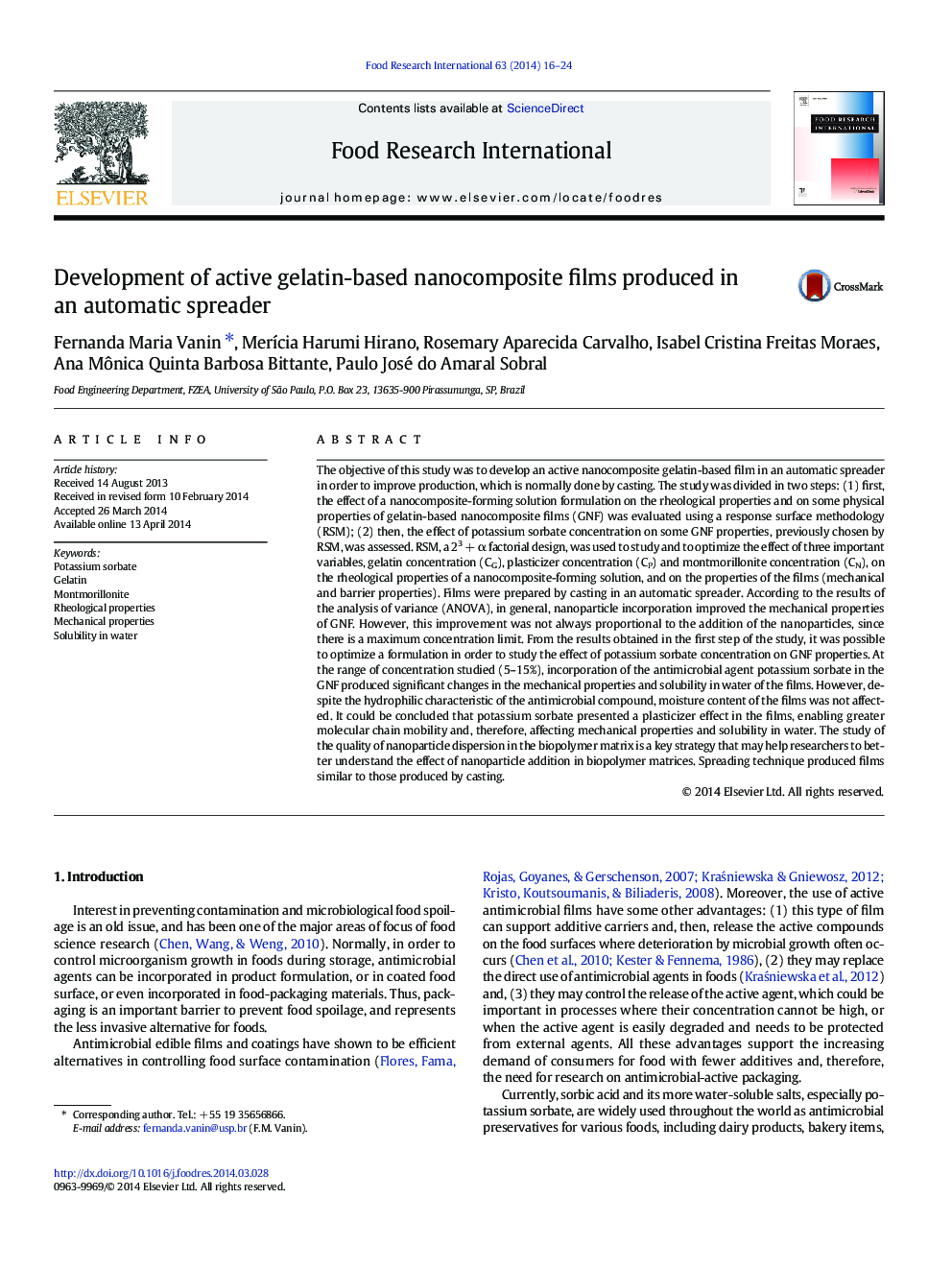| کد مقاله | کد نشریه | سال انتشار | مقاله انگلیسی | نسخه تمام متن |
|---|---|---|---|---|
| 6395705 | 1330657 | 2014 | 9 صفحه PDF | دانلود رایگان |
- Gelatin-based nanocomposite films were produced by casting in an automatic spreader.
- Nanoparticle incorporation improved the mechanical properties of films.
- Incorporation of potassium sorbate produced significant changes in films properties.
- Spreading technique produced films similar to those produced by casting.
The objective of this study was to develop an active nanocomposite gelatin-based film in an automatic spreader in order to improve production, which is normally done by casting. The study was divided in two steps: (1) first, the effect of a nanocomposite-forming solution formulation on the rheological properties and on some physical properties of gelatin-based nanocomposite films (GNF) was evaluated using a response surface methodology (RSM); (2) then, the effect of potassium sorbate concentration on some GNF properties, previously chosen by RSM, was assessed. RSM, a 23 + α factorial design, was used to study and to optimize the effect of three important variables, gelatin concentration (CG), plasticizer concentration (CP) and montmorillonite concentration (CN), on the rheological properties of a nanocomposite-forming solution, and on the properties of the films (mechanical and barrier properties). Films were prepared by casting in an automatic spreader. According to the results of the analysis of variance (ANOVA), in general, nanoparticle incorporation improved the mechanical properties of GNF. However, this improvement was not always proportional to the addition of the nanoparticles, since there is a maximum concentration limit. From the results obtained in the first step of the study, it was possible to optimize a formulation in order to study the effect of potassium sorbate concentration on GNF properties. At the range of concentration studied (5-15%), incorporation of the antimicrobial agent potassium sorbate in the GNF produced significant changes in the mechanical properties and solubility in water of the films. However, despite the hydrophilic characteristic of the antimicrobial compound, moisture content of the films was not affected. It could be concluded that potassium sorbate presented a plasticizer effect in the films, enabling greater molecular chain mobility and, therefore, affecting mechanical properties and solubility in water. The study of the quality of nanoparticle dispersion in the biopolymer matrix is a key strategy that may help researchers to better understand the effect of nanoparticle addition in biopolymer matrices. Spreading technique produced films similar to those produced by casting.
Journal: Food Research International - Volume 63, Part A, September 2014, Pages 16-24
